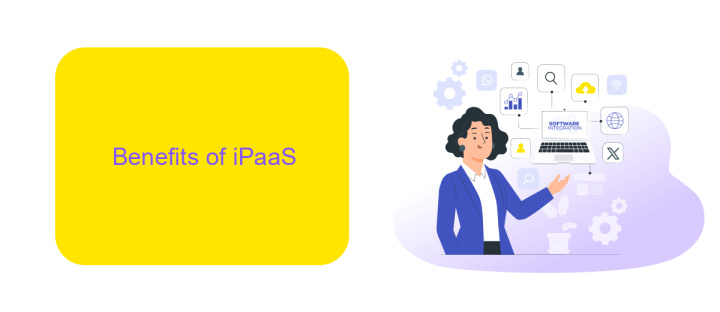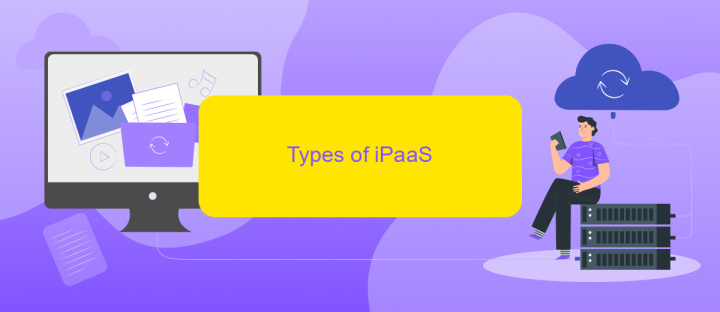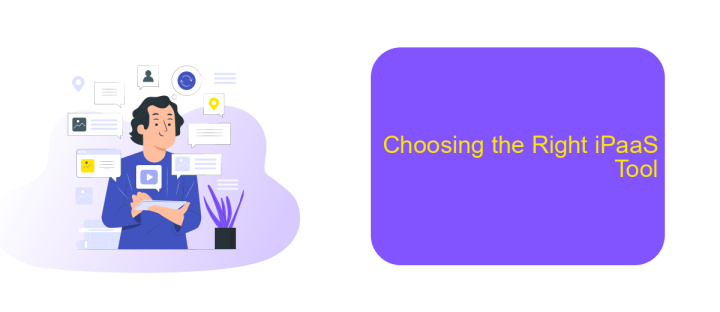iPaaS Tool
In today's fast-paced digital landscape, businesses increasingly rely on Integration Platform as a Service (iPaaS) tools to streamline their operations. These cloud-based solutions enable seamless connectivity between disparate systems, applications, and data sources, enhancing efficiency and agility. This article explores the key features, benefits, and considerations for selecting the right iPaaS tool to meet your organization's integration needs.
Introduction
In today's fast-paced digital landscape, businesses increasingly rely on Integration Platform as a Service (iPaaS) tools to streamline their operations. iPaaS solutions enable organizations to connect disparate systems, applications, and data sources, ensuring seamless data flow and operational efficiency. These platforms are essential for companies aiming to enhance their agility and scalability in an ever-evolving market.
- Automated data synchronization
- Real-time data integration
- Scalability and flexibility
- Enhanced operational efficiency
- Cost-effective solutions
One notable example of an iPaaS tool is ApiX-Drive. This service simplifies the process of setting up integrations between various business applications without requiring extensive technical expertise. By leveraging ApiX-Drive, companies can automate workflows, reduce manual errors, and ensure that critical data is always up-to-date across all platforms. As a result, businesses can focus more on strategic initiatives and less on managing complex IT infrastructures.
Benefits of iPaaS

One of the primary benefits of using an iPaaS (Integration Platform as a Service) is the significant reduction in time and effort required to integrate various applications and systems. With iPaaS, businesses can seamlessly connect disparate software solutions, enabling smooth data flow and operational coherence. This is particularly advantageous for organizations that rely on multiple cloud services and on-premises systems. Tools like ApiX-Drive simplify this process by providing user-friendly interfaces and pre-built connectors, which allow for quick and efficient setup of integrations without the need for extensive coding knowledge.
Another key advantage of iPaaS is its scalability and flexibility. As businesses grow and evolve, their integration needs can become increasingly complex. iPaaS solutions are designed to scale with these needs, offering the ability to easily add or modify integrations as required. This ensures that businesses can adapt to changing market conditions and technological advancements without significant disruptions. Additionally, iPaaS platforms like ApiX-Drive offer robust monitoring and management features, enabling organizations to maintain control over their integrations and ensure optimal performance at all times.
Types of iPaaS

iPaaS (Integration Platform as a Service) solutions come in various types, each designed to meet different integration needs and scenarios. These platforms facilitate the seamless connection of different applications and services, streamlining workflows and enhancing productivity.
- Cloud-based iPaaS: These platforms are hosted on the cloud and offer scalability, flexibility, and ease of access. They are ideal for businesses looking to integrate cloud applications without the need for extensive on-premises infrastructure.
- Hybrid iPaaS: Combining both cloud and on-premises environments, hybrid iPaaS solutions are perfect for organizations that need to integrate legacy systems with modern cloud applications. This type ensures data consistency and operational continuity.
- Enterprise iPaaS: Designed for large organizations, enterprise iPaaS solutions offer advanced features such as API management, complex event processing, and robust security measures. They are capable of handling high volumes of data and numerous integrations.
One notable example of a cloud-based iPaaS is ApiX-Drive, which simplifies the integration process by offering a user-friendly interface and pre-built connectors for various applications. This service helps businesses automate workflows without requiring extensive technical knowledge, making it accessible for companies of all sizes.
Choosing the Right iPaaS Tool

Choosing the right iPaaS tool is essential for ensuring seamless integration and automation of your business processes. The ideal tool should align with your company’s specific needs, offering scalability, ease of use, and robust support.
Start by evaluating the integration capabilities of the iPaaS tools available. Consider whether the tool can seamlessly connect with your existing software and applications. For instance, ApiX-Drive offers an intuitive interface and extensive integration options, making it a strong candidate for businesses looking to streamline their workflows.
- Compatibility with existing systems
- User-friendly interface
- Scalability for future growth
- Comprehensive customer support
- Cost-effectiveness
Additionally, consider the level of customization the tool offers. A flexible iPaaS solution like ApiX-Drive allows you to tailor integrations to your specific business requirements, ensuring that your workflows are optimized and efficient. By carefully assessing these factors, you can select an iPaaS tool that will enhance productivity and drive business success.
Future Trends in iPaaS
As businesses continue to evolve, the demand for more sophisticated Integration Platform as a Service (iPaaS) solutions is expected to grow. Future trends in iPaaS will likely focus on enhancing automation and artificial intelligence capabilities to streamline the integration process. This will enable companies to automate complex workflows with minimal human intervention, significantly reducing the time and effort required to manage integrations. Additionally, there will be a greater emphasis on real-time data processing and analytics, allowing businesses to make more informed decisions quickly.
Another significant trend will be the increased adoption of low-code and no-code platforms, making it easier for non-technical users to set up and manage integrations. Tools like ApiX-Drive are already paving the way by offering user-friendly interfaces that simplify the integration process. As the market continues to mature, we can expect more iPaaS providers to offer similar solutions, further democratizing access to powerful integration capabilities. This will empower businesses of all sizes to leverage advanced integrations without the need for extensive technical expertise.
- Automate the work of an online store or landing
- Empower through integration
- Don't spend money on programmers and integrators
- Save time by automating routine tasks
FAQ
What is an iPaaS tool?
How does an iPaaS tool work?
What are the benefits of using an iPaaS tool?
Is coding knowledge required to use an iPaaS tool?
Can iPaaS tools integrate with both cloud-based and on-premise systems?
Time is the most valuable resource in today's business realities. By eliminating the routine from work processes, you will get more opportunities to implement the most daring plans and ideas. Choose – you can continue to waste time, money and nerves on inefficient solutions, or you can use ApiX-Drive, automating work processes and achieving results with minimal investment of money, effort and human resources.


